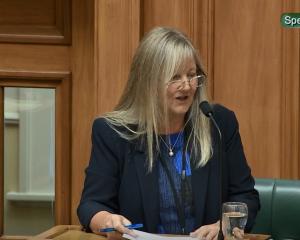Property developers are using title covenants to stop houses for low income families or disabled people being built in subdivisions, a parliamentary committee was told today.
The Human Rights Commission said it supported a clause in the Affordable Housing: Enabling Territorial Authorities Bill that would render void any covenants aimed at stopping the provision of affordable housing or the development of social housing.
The legislation gives territorial authorities the ability to require some affordable housing to be built in new developments or to contribute money or land towards affordable housing being built elsewhere.
Chief commissioner Rosslyn Noonan today told Parliament's local government and environment select committee there were cases of property developers using restrictive covenants to prevent certain types of housing.
She urged MPs on the committee to support those aspects of the bill that would stop this happening.
"The focus of our submission is on those sections of the bill that would prevent developers using title covenants to exclude social or affordable housing including supported accommodation," she said.
"In New Zealand we should not be encouraging developments which completely prevent mixed housing. We should not be allowing developments which effectively ghetto-ise the very well off ...
"What we know is there's real difficulty in finding places for supported housing for disabled people. It's a constant issue. It's not just covenants. Various other mechanisms are used to try to prevent, minimise, supported housing for disabled people and our view is that there shouldn't be measures which prevent some element of supported housing in developments."
If the best land, particularly inner city or on the city fringe, was "locked out" from providing some affordable housing "you're really building a long-term problem for society and for the future".
Labour MP Marian Hobbs said the committee had heard before that in Auckland there was increasing use of such covenants to limit what kinds of housing could be built in certain areas.
Ms Noonan said people had been able to "get around" the Human Rights Act so this bill would clarify the law.
She said "a number" of cases had been brought to the commission. The one that had got the most publicity involved a property developer in Nelson who sought to restrict any form of "institutional accommodation" in a development by way of a covenant.
"My recollection is there was a satisfactory outcome in that case once people sat down and worked through the issues," she said.
National MP Nick Smith, who is MP for Nelson, questioned how many of these types of cases the commission had received.
Ms Noonan could not immediately provide specific examples of other cases but said there were others and she promised to provide the details to the committee.
National MP Phil Heatley said people using covenants to stop state housing being built presumably wanted to do this because they did not want "gangs or they don't want run-down houses in despair, or vandalism or that type of thing happening".
Others the committee heard from today included Business NZ, which says the bill should not proceed.
Business NZ economist John Pask told the committee it would be impossible to issue covenants stipulating certain types of people could not buy into subdivisions.
"They're trying," Green MP Sue Bradford said.
Business NZ said the bill could well reduce the number of houses available and increase the cost of available housing.
It also took property rights off land developers without compensation.
To help housing affordability, the fundamental issue of land supply needed to be addressed because of significantly rising land development costs.
"Artificial restrictions" on land availability for sub-division should be lifted.
Examples of artificial restrictions occurred in Auckland or Wellington where there was ring-fencing of where developments of housing could occur.
There was rural land in Wellington's Ohariu Valley that was generally "useless' agricultural land and close to Wellington but could not be subdivided into small lots.












